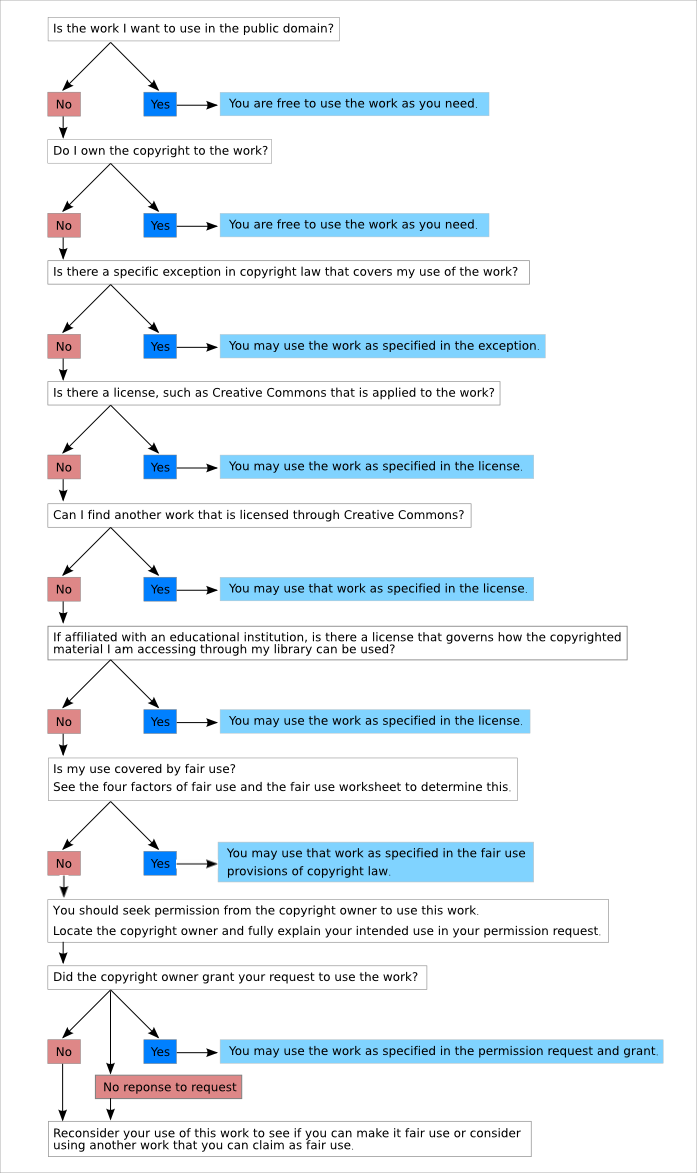How to Deal with Copyright Questions: A Framework
When trying to figure out the best way to deal with copyrighted materials and how or if you can use them, it is often difficult to come up with a clear-cut answer. The many components of copyright can make it somewhat difficult to understand. That is why it helps to have a tool that can help you answer your copyright questions and be able to make decisions about copyright that are sound.
Whenever you have issues with copyright, working through The Copyright Decision Tree should help you come to an answer that is legally and ethically sound.
You may need to do some reading through other parts of this site or other web pages in order to answer these questions about your specific situation, but it will be worth your time. If, after all of this, you are still not sure of the right answer to your copyright question, you can consult with resources on campus that can help.
Copyright Decision Tree
An accessible text version of this image is presented following:

To decide whether you are able to use a work, proceed through the following questions.
Links lead to additional information to help you understand each concept and make an informed decision.
1. Is the work I want to use in the public domain?
If yes, you are free to use the work as you need.
If no, continue to the next question.
2. Do I own the copyright to this work?
If yes, you are free to use the work as you need.
If no, continue to the next question.
3. Is there an exception in the law that covers my use of the work?
If yes, you are free to use the work as specified in the exception.
If no, continue to the next question.
4. Is there a license such as Creative Commons applied to the work?
If yes, you are free to use the work as specified in the license.
If no, continue to the next question.
5. Can I find another work that is licensed through Creative Commons?
If yes, you are free to use the work as specified in the license.
If no, continue to the next question.
If yes, you are free to use the work as specified in the license.
If no, continue to the next question.
7. Is my use covered by fair use?
If yes, you are free to use the work as specified in the fair use provisions of copyright law.
If no, you should seek permission from the copyright owner to use this work.
8. Did the copyright owner grant your request to use the work?
If yes, you may use the work as specified in the permission request and grant.
If no, or no response to the request, reconsider your use of the work to see if you can make it fair use or consider using another work that you can claim as fair use.
.
Resources
Additional tools to help you make copyright decisions
A Map of Use Issues: A tool from the University of Minnesota that helps you decide if you can use copyrighted materials.
Using Materials in the Classroom: An interactive tool from the University of North Carolina: Greensboro that helps you decide if you can use copyrighted materials.


